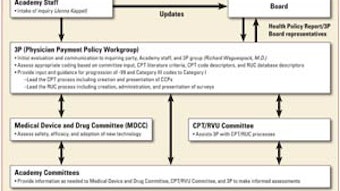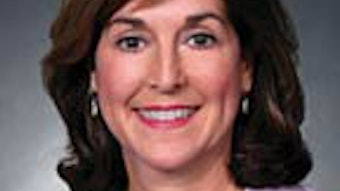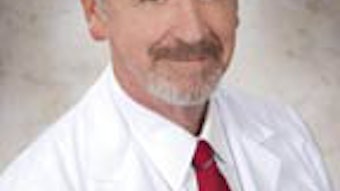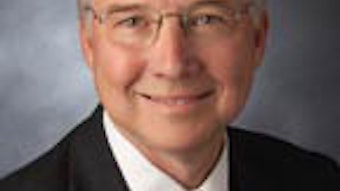Choosing Wisely
David R. Nielsen, MD, AAO-HNS/F EVP/CEO As each of us knows, the demand for evidence of quality in practice, measuring performance, and demonstrating improvement has increasingly dominated the practice landscape for the last decade. As quality improvement has become closely linked with physician payment reform, new levels of skepticism are not unexpected. The question frequently asked is, “Is the debate really about making patients better and improving health outcomes, or just another excuse to manipulate payment?” Our answer: It is up to us to ensure that the focus remains on improving outcomes—on real patient benefits, not just lip-service in the name of payment modification. The Academy and Foundation have developed a robust program with support staff, new committees, and volunteer structures, and increased focus on evidence-based practice designed to “put our money where our mouth is.” We not only accept, but champion the challenge of identifying potential gaps in knowledge and care and addressing what we as a specialty and as individual surgeons can do to improve patient outcomes while more effectively managing finite resources. Our Guidelines Development Task Force and its work groups, the Advisory Council on Quality, and our stable of evidence-based guidelines and endorsed performance measures are all demonstrations of our commitment to improve care in meaningful ways. While still small in scope, these efforts are effective and important markers of our leadership in real quality improvement. But as challenging as it is to identify and prioritize quality topics, develop evidence-based guidelines and measures, and document our involvement, this is still the “easy part.” Actual implementation and documentation of real patient improvement with more efficient use of resources remains the greater challenge. Because of that challenge, the Academy has accepted an invitation from the American Board of Internal Medicine (ABIM) Foundation to join in an effort called Choosing Wisely™. What does this mean? To paraphrase the supportive material of the campaign, even after years of investing in quality improvement and cost-cutting measures, the evidence that we are getting a return on our investment in either quality or cost is not strong. This failure emphasizes the fact that implementation is much more difficult than theory; that developing clearly thought-out systems and processes for care that is better managed is essential: that we must be thinking simply about what every otolaryngologist could do to improve care in his or her practice, to reduce waste and duplicated effort. In the office setting this means physicians and patients begin choosing the best care that is appropriate for them and supported by evidence; that the care is not duplicative of tests or procedures already received; that it won’t harm them; and that it is truly necessary. According to the ABIM Foundation, “The Congressional Budget Office estimates that up to 30 percent of care delivered in the United States goes toward unnecessary tests, procedures, doctor visits, hospital stays, and other services that may not improve people’s health—and in fact, may actually cause harm. If current trends remain unchanged, the Centers for Medicare and Medicaid Services project U.S. healthcare spending will reach $4.3 trillion and increase from 17.3 percent to 19.3 percent of the nation’s gross domestic product by 2019.” We are joining with medical leaders and members of more than a dozen other societies to address what has become an unsustainable healthcare system. Our goal collectively is to improve patient health, and, simultaneously, to identify and reduce waste in the healthcare system. Consumer Reports, the nation’s leading independent, nonprofit consumer organization, has also joined the campaign to provide resources for patients (consumers) and physicians to encourage them to have the important conversations leading to commitment to better choices in care. As the ABIM Foundation states, Choosing Wisely™ aims to get physicians, patients, and other healthcare stakeholders thinking and talking about the overuse or misuse of medical tests and procedures that provide little benefit, and in some instances harm.” You will note in this issue of the Bulletin our updated and revised Clinical Indicators. I urge you to review these to identify areas of your practice that you could address with your office staff and patients where you could more effectively use resources, avoid duplication or waste, and improve care. We will be doing the same on a society basis. As part of Choosing Wisely™, each participating specialty society will identify five tests, procedures, or care choices commonly used in its field whose use should be discussed or questioned. Our Patient Safety/Quality Improvement Committee (PSQI), as well as other research and quality and content committees, will discuss the opportunities where we can address and report on to the membership and the public about how we are leading the change to improve healthcare in otolaryngology. This will be an ongoing effort—one in which we will demonstrate the leadership necessary to truly make a difference in healthcare for each individual patient, and for collective and global outcomes.
David R. Nielsen, MD, AAO-HNS/F EVP/CEO
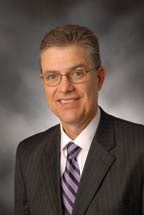 David R. Nielsen, MD, AAO-HNS/F EVP/CEO
David R. Nielsen, MD, AAO-HNS/F EVP/CEOAs each of us knows, the demand for evidence of quality in practice, measuring performance, and demonstrating improvement has increasingly dominated the practice landscape for the last decade. As quality improvement has become closely linked with physician payment reform, new levels of skepticism are not unexpected. The question frequently asked is, “Is the debate really about making patients better and improving health outcomes, or just another excuse to manipulate payment?”
Our answer: It is up to us to ensure that the focus remains on improving outcomes—on real patient benefits, not just lip-service in the name of payment modification. The Academy and Foundation have developed a robust program with support staff, new committees, and volunteer structures, and increased focus on evidence-based practice designed to “put our money where our mouth is.” We not only accept, but champion the challenge of identifying potential gaps in knowledge and care and addressing what we as a specialty and as individual surgeons can do to improve patient outcomes while more effectively managing finite resources. Our Guidelines Development Task Force and its work groups, the Advisory Council on Quality, and our stable of evidence-based guidelines and endorsed performance measures are all demonstrations of our commitment to improve care in meaningful ways. While still small in scope, these efforts are effective and important markers of our leadership in real quality improvement.
But as challenging as it is to identify and prioritize quality topics, develop evidence-based guidelines and measures, and document our involvement, this is still the “easy part.” Actual implementation and documentation of real patient improvement with more efficient use of resources remains the greater challenge. Because of that challenge, the Academy has accepted an invitation from the American Board of Internal Medicine (ABIM) Foundation to join in an effort called Choosing Wisely™. What does this mean?
To paraphrase the supportive material of the campaign, even after years of investing in quality improvement and cost-cutting measures, the evidence that we are getting a return on our investment in either quality or cost is not strong. This failure emphasizes the fact that implementation is much more difficult than theory; that developing clearly thought-out systems and processes for care that is better managed is essential: that we must be thinking simply about what every otolaryngologist could do to improve care in his or her practice, to reduce waste and duplicated effort. In the office setting this means physicians and patients begin choosing the best care that is appropriate for them and supported by evidence; that the care is not duplicative of tests or procedures already received; that it won’t harm them; and that it is truly necessary.
According to the ABIM Foundation, “The Congressional Budget Office estimates that up to 30 percent of care delivered in the United States goes toward unnecessary tests, procedures, doctor visits, hospital stays, and other services that may not improve people’s health—and in fact, may actually cause harm. If current trends remain unchanged, the Centers for Medicare and Medicaid Services project U.S. healthcare spending will reach $4.3 trillion and increase from 17.3 percent to 19.3 percent of the nation’s gross domestic product by 2019.”
We are joining with medical leaders and members of more than a dozen other societies to address what has become an unsustainable healthcare system. Our goal collectively is to improve patient health, and, simultaneously, to identify and reduce waste in the healthcare system. Consumer Reports, the nation’s leading independent, nonprofit consumer organization, has also joined the campaign to provide resources for patients (consumers) and physicians to encourage them to have the important conversations leading to commitment to better choices in care. As the ABIM Foundation states, Choosing Wisely™ aims to get physicians, patients, and other healthcare stakeholders thinking and talking about the overuse or misuse of medical tests and procedures that provide little benefit, and in some instances harm.”
You will note in this issue of the Bulletin our updated and revised Clinical Indicators. I urge you to review these to identify areas of your practice that you could address with your office staff and patients where you could more effectively use resources, avoid duplication or waste, and improve care. We will be doing the same on a society basis. As part of Choosing Wisely™, each participating specialty society will identify five tests, procedures, or care choices commonly used in its field whose use should be discussed or questioned. Our Patient Safety/Quality Improvement Committee (PSQI), as well as other research and quality and content committees, will discuss the opportunities where we can address and report on to the membership and the public about how we are leading the change to improve healthcare in otolaryngology. This will be an ongoing effort—one in which we will demonstrate the leadership necessary to truly make a difference in healthcare for each individual patient, and for collective and global outcomes.
